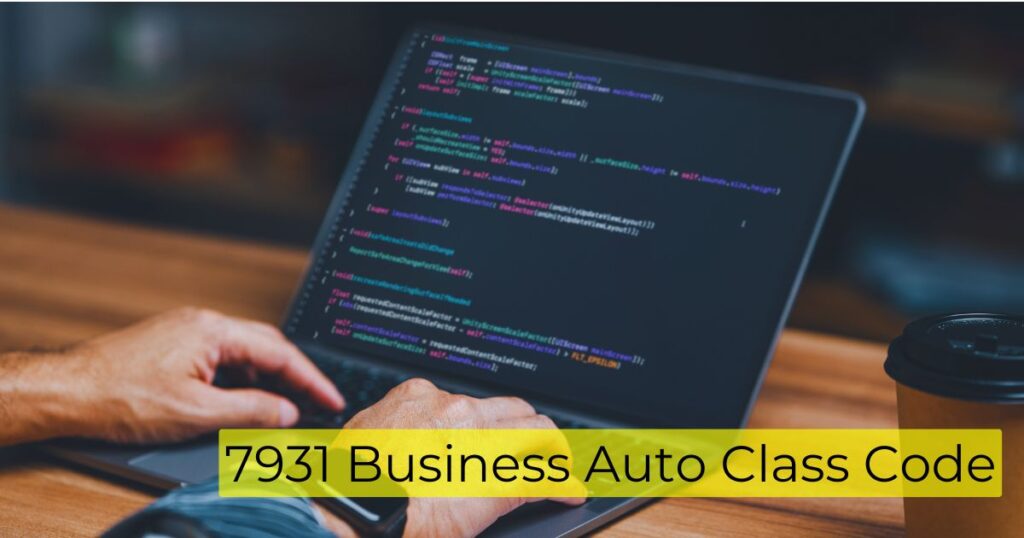The 7931 business auto class code refers to a specific classification used in commercial auto insurance to identify vehicles primarily used for business purposes. This code plays a significant role in determining insurance premiums and coverage options for businesses that rely on vehicles for operations.
Eligibility Criteria for the 7931 Code
To qualify for the 7931 business auto class code, businesses must meet specific criteria. Generally, this code applies to vehicles used for business operations, including delivery vans, service trucks, and any vehicle utilized for transporting goods or services. Personal vehicles used occasionally for business purposes usually do not qualify.
Benefits of the 7931 Class Code
Choosing the 7931 business auto class code offers several advantages for businesses. First, it helps streamline the insurance underwriting process. Insurers can evaluate risk levels more accurately, allowing them to provide tailored coverage options. Additionally, businesses often benefit from competitive premium rates, given the code’s association with defined risk categories.
Potential Risks and Challenges
While the 7931 code provides numerous benefits, businesses must also be aware of the potential risks. For example, using vehicles primarily for business can increase the likelihood of accidents, leading to higher insurance claims. Additionally, businesses must keep up with vehicle maintenance and safety regulations to avoid penalties and increased premiums.
How the 7931 Code Affects Insurance Premiums
The 7931 business auto class code significantly influences insurance premiums. Insurers assess the risk associated with each vehicle based on its classification, which affects the cost of coverage. Understanding how this code impacts rates allows businesses to make informed decisions about their insurance.
Coverage Options Available under the 7931 Code
Business owners should explore various coverage options associated with the 7931 code. Common choices include liability, collision, and comprehensive coverage. Businesses should evaluate their unique operational needs to select the best coverage options that provide adequate protection.
Choosing the Right Insurance Provider
Selecting the right insurance provider is essential for businesses operating under the 7931 code. Business owners should look for insurers with expertise in commercial auto insurance, as they can better understand the unique challenges and needs associated with business vehicles.
Case Studies: Real-World Applications of the 7931 Code
Examining real-world applications of the 7931 business auto class code provides valuable insights into how businesses navigate their insurance needs and the benefits of this classification.
Case Study 1: A Local Delivery Service
A small local delivery service operating a fleet of vans classified under the 7931 code faced rising insurance premiums due to an increase in claims. By analyzing their operations and working closely with their insurance provider, the business identified opportunities for risk management, such as implementing driver training programs and enhancing vehicle maintenance protocols. These initiatives improved safety and allowed the business to negotiate lower premiums based on their improved risk profile.
Case Study 2: Mobile Repair Services
A mobile repair service specializing in home appliance repairs utilized vehicles under the 7931 business auto class code. Recognizing the unique risks associated with their operations, the business opted for comprehensive liability coverage to protect against potential claims from customers. By strategically selecting coverage options that addressed their specific needs, the business safeguarded its assets while managing insurance costs.
Case Study 3: Construction Company Fleet
A construction company operating a fleet of trucks and vans relied heavily on its vehicles for transporting equipment and materials to job sites. Under the 7931 code, the company secured specialized coverage options that addressed the higher risks associated with construction work. This case highlights the importance of tailored insurance solutions that align with the challenges faced by businesses in different sectors.
Conclusion
Understanding the 7931 business auto class code is crucial for businesses that rely on vehicles for their operations. This code influences the underwriting and pricing of commercial auto insurance and helps businesses secure tailored coverage that meets their specific needs. By recognizing the eligibility criteria, benefits, potential risks, and the importance of selecting the right insurance provider, business owners can navigate the complexities of commercial auto insurance confidently.
As businesses evolve and adapt to changing market conditions, staying informed about insurance options and requirements becomes increasingly important. By proactively managing their insurance needs, business owners can protect their investments, mitigate risks, and ensure the long-term success of their operations. Ultimately, understanding the 7931 business auto class code empowers businesses to make informed decisions that align with their operational goals and secure their future.
Frequently Asked Questions (FAQs)
Addressing common questions can help demystify the topic and empower business owners to make informed decisions about their insurance coverage.
What types of vehicles fall under the 7931 code?
Typically, this code applies to vehicles primarily used for business operations, such as delivery vans and service vehicles. However, personal vehicles used occasionally for business may not qualify, so it’s essential to evaluate vehicle usage accurately.
How does the 7931 business auto class code affect insurance premiums?
Vehicles classified under this code may be subject to different premium calculations based on the specific risks associated with business activities. Understanding this classification’s implications is critical for effectively managing insurance costs.
What coverage options are available under the 7931 business auto class code?
Insurers typically offer a range of coverage options, including liability, collision, and cargo coverage. Business owners should assess their operational needs and choose options that adequately protect their vehicles.
